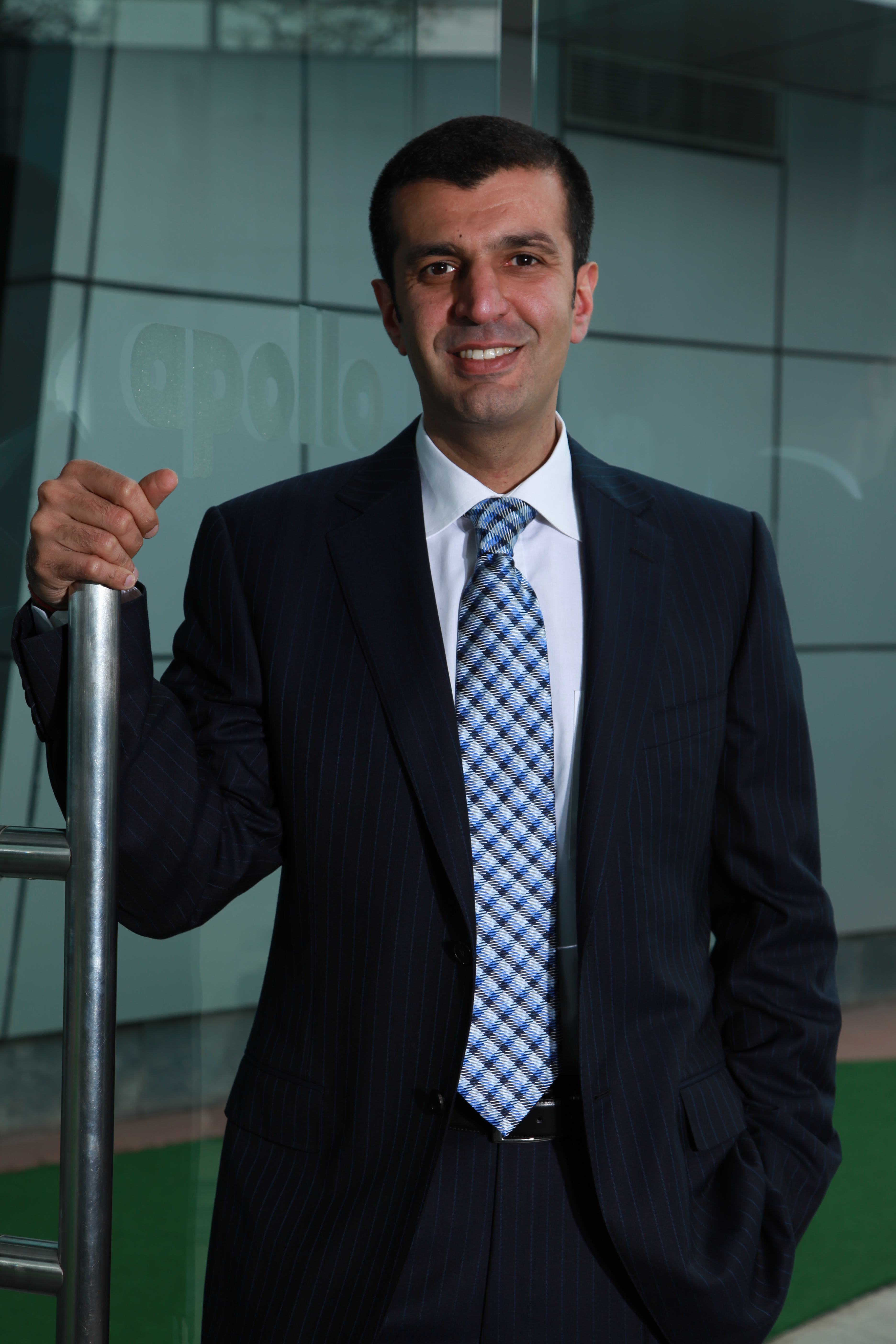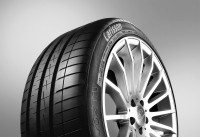Apollo moves European truck tyre OE R&D to Enschede
 As managing director Neeraj Kanwar explained in Geneva recently, Apollo Tyres has advanced plans for its European truck tyre range, which include plans for a 360 degree retreading strategy
As managing director Neeraj Kanwar explained in Geneva recently, Apollo Tyres has advanced plans for its European truck tyre range, which include plans for a 360 degree retreading strategy
Neeraj Kanwar and Sunam Sarkar on truck tyres, internal reorganisation and retreading
Attending the Geneva Motor Show is about original equipment (OE) positioning as much as it is about brand building. So when ambitious and fast-growing firms such as Apollo Tyres continue to make significant investments in such an exhibition it provokes questions about the company’s OE strategy. Geneva may ostensibly be about the latest and best cars, but our conversation with Apollo executives quickly shifted to the commercial vehicle tyres sector. Tyres & Accessories spoke with Apollo Tyres vice-chairman and managing director Neeraj Kanwar as well as chief business officer Sunam Sarkar in order to find out more about this as well as to consider the company’s future retreading options.
While Apollo has grown quickly economically, in terms of manufacturing quantity and quality and with regard to OE contracts, there is still a feeling amongst senior executives that Apollo Tyres must “up internal barometers regarding brand and technology” in order to gain more European OE. And therefore the received wisdom is that the company has to invest more in research and development. To this end, there has also been something of an internal reorganisation at Apollo Tyres’ global research and development centre in Enschede.
The initial plan for the relatively new R&D centre located in the Netherlands, which is just a stone’s throw away from the former Vredestein Enschede production site, was to be a global centre for passenger car tyre design, with an view to gaining more and better OE contracts in Europe. Now there seems to a degree of recognition of the suggestion that – when it comes to gaining high-profile European OE contracts – European R&D is better for the truck tyre segment as well. Previously the idea was for the truck tyre part of the research function to be based in India where the company has been producing Apollo-branded truck tyres for years. This will continue and – as far as the Indian sub-continent and certain other markets are concerned – however in future Europe OE-orientated truck tyre R&D will reside in Enschede alongside the car tyre research.
This re-organisation comes at a time when Apollo is of course embarking on a significant investment in its Hungary, Greenfield tyre production site. This too highlights another reason for the R&D reorganisation. While timely and high-quality product manufacture and supply to European markets were key motivations for the 475 million-euro investment, it is also worth remembering that the plant is scheduled to produce 5.5 million passenger car tyres a year and 675,000 truck tyres in the first phase of production (the second phase will see the truck tyre output double, according to executives). The point is that it makes sense for Europeans – or at least Europe-based experts – working between Enschede and Hungary to oversee the establishment of Apollo’s European truck tyre manufacturing debut. And of course the investment in a truck tyre production line in Hungary has a European OE dimension too – the geographical proximity of nearby Daimler and Audi factories is not lost on Apollo’s management.
Kanwar was clear that the new factory is “a big challenge” at least partly owing to the fact that it is the first time the company has constructed a greenfield site outside India. That’s why there are between 30 and 40 engineers on the ground. To this we can add management and ultimately a workforce, bringing the total Hungary headcount to around 900.
Developing a retreading strategy
With production and OE on the cards, the obvious question relating to Apollo’s truck tyre aspirations is “what is retreading strategy?” As we all know, firms can only go so far in the highly competitive business to business sector without a multi-life strategy. In Apollo’s case, there is an unspoken confidence that the company will be able to product a competitive European specification truck tyre very swiftly. This is all well and good, but the real value and the biggest scale is locked up in the largest truck fleets. And these firms aren’t interested in products that offer only one life.
This leaves Apollo with two options: partner with (and/or buy) an existing retreading supplier and its network of customer retreading businesses or establish its own. At this stage Apollo is able to do either. The Indian-based company may have invested significant sums in Manchester United sponsorship and the establishment of the Hungary factory, but both combined are still significantly less that the multi-billion dollar figure Apollo was prepared to pay out for Cooper. That saga may have turned out to be an expensive lesson global business politics, but the point is that there is still cash (or at least leverage) in the Apollo kitty for further investments and/or acquisitions – if required.
At the same time it is worth remembering that Apollo has its own retreading material manufacturing business supplying tread rubber and cement in India. The Apollo Retread Zone network has been running in parallel with its Indian (and other international) truck tyre business for years and therefore there is always the possibility that the company is considering this as a possible retreading option to partner its Europe-market orientated truck tyres.
The fact that Apollo is able to do either of these clear options also gives rise to a third way – the both card. Could Apollo find some way of doing a combination – perhaps supplying its retreading materials via a third-party with a network? Perhaps buying a third-party network with strategic value in Europe and/or other global markets?
What is clear is that Apollo is working on its 360 truck tyre strategy and has brought in key personnel from premium OEMs and leading tyre makers in order to make these plans a reality. The first stage was to make retreading a foundation of its truck and bus radials from the outset. This is something that has always been in the picture, according to Apollo. Such is their confidence, the Apollo executives commented that “competitors will be surprised at the advanced nature of Apollo’s truck and bus radial technology.”
And again, the Hungary factory, which makes Apollo the only “new” manufacturer (or former non-European tyre importer) to have truck tyre manufacturing in Europe. This is of course a significant part of the company’s fleet and OE strategy as the European location of its factory significant includes the speed to market and reduces shipping cost.




Comments